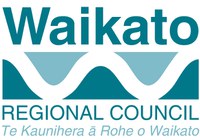Waikato Regional Council
Collaborating pays off
 Developing an entirely new software platform from which six regional councils can operate is an exciting new initiative driven by the Waikato Regional Council.
Developing an entirely new software platform from which six regional councils can operate is an exciting new initiative driven by the Waikato Regional Council.
“We realised we had to do something significant to upgrade our core information system,” says Junine Stewart, Group Manager of Corporate Services at the Council.
On researching the market, Ms Stewart and her colleagues discovered no viable commercial packages. She was, however, aware that other regional councils were looking to also replace their software for supporting specific regional council requirements.
“So we put a proposal to all regional councils for a collective approach to go to market to attempt to procure a software product.”
The 10 regional councils agreed to tender together, and Northland Regional Council and Waikato Regional Council led a syndicated procurement consortium.
A decision was made by six councils (Northland, Taranaki, Horizons, West Coast, Southland, and Waikato), to collectively accept one of the bids, from Datacom, to develop the application – the Integrated Regional Information System (IRIS). All six councils are participating to varying degrees in its development. Ms Stewart says they have left the door open for the remaining regional councils to join them at a later date should they choose to do so.
Members from the six councils then formed a steering committee to provide the appropriate governance and management for both the development and ongoing management of the IRIS product.
While the system is expected to make the council considerable savings in terms of dollars, Ms Stewart says the benefits go much further than that. They are taking the most effective and efficient aspects of all six regional councils’ systems and using that information to create a best practice system.
Although the system is yet to be launched, IRIS has been clearly shown to be significantly more cost-effective than a single entity creating such software. The system is predominately for business processes such as consents, monitoring requests, land management, and enforcements.
The project has been broken down into 13 phases. This has kept it manageable because each phase has been scoped, requirements ascertained, produced, and then tested on the people within the councils who will be using the end product.
“The feedback has been extremely favourable in terms of how efficiently these people can do their jobs.”
The council has provided some specialist support staff to take the overview perspective at all levels including functionality, technical issues, delivery, project management, and governance. The project is in now in the later stages of development.
Although it has been a long process, Ms Stewart says they have ensured that the end product will be a success. Audit New Zealand has assessed the product and process, and has provided consistently positive feedback.
Ms Stewart recognises that the product being created is very specific to regional councils, but she believes the management of the project has been exemplary.
“In terms of such things as the governance, reporting, and assessment of the project, I think other organisations could benefit from this experience. We have had a rigorous structure in place, including involvement from all stakeholders in the steering group.”
“It’s a good example of IT management governance.”
The project is running to budget and to scope, and throughout has maintained the enthusiasm and commitment of all participants. All the key drivers for the project are being achieved, and the ongoing governance and management models should ensure that they will continue to be achieved.
IRIS is going live at the end of the 2012 to early 2013.
Based on an interview with Mike Garrett, Group Manager of Finance, on 18 June 2012.
Disclaimer: This case study is the entity’s story – we have not audited the facts but have confirmed with the entity that its story is fairly represented.
